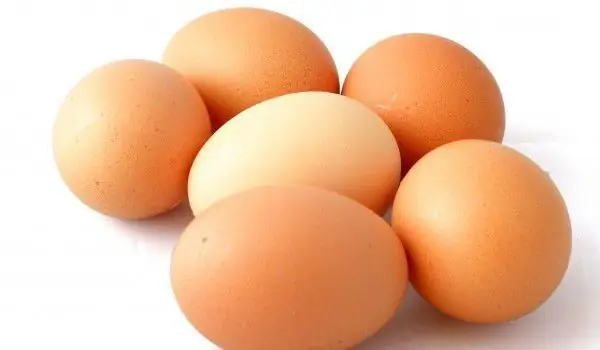2025 Author: Jasmine Walkman | [email protected]. Last modified: 2025-01-23 10:18
Nearly 20 percent of the eggs in the trade network of our neighbor Greece are harvested in Bulgaria. This was announced by the chairman of the chairman of the poultry farmers in our country - Ivaylo Galabov.
According to him, not only the Greek resorts located near our country rely on the export of Bulgarian eggs, but most of the chains in our southern neighbor have contracts with Bulgarian producers.
Galabov adds that the prices of eggs in Bulgaria are one of the lowest in the European Union. Their values are similar only in Poland, Belgium and Romania.
At the moment the price of one egg in our country is on average 8 euro cents, not counting the costs of transport and packaging. If consumers buy eggs from retail chains, these services are included in the final price and, accordingly, it is higher.
In the last week there has been a decline of about 1% in wholesale egg prices, but according to Galabov such a decrease is normal for this time of year.

Fresh eggs are sold in Bulgarian shops. By marking eggs it becomes clear how long they are suitable and what is their origin - says the chairman of the poultry farmers about the quality of eggs in our country.
Galabov appeals to consumers to look for Bulgarian goods first, as in this way they stimulate domestic producers. Poultry farmers in our country have enough resources to meet market demand.
According to the expert's observations, until last year the industry suffered from smuggled eggs, but the data from the beginning of this year show that the unregulated activity has significantly reduced its scale.
In 2011, many Bulgarian farms were closed because they did not meet European requirements for the production of eggs and poultry products. On the other hand, the share of modernized farms has increased.
Poultry farmers rely mainly on EU programs to modernize their farms so that they are competitive with the rest of Western Europe, says Ivaylo Galabov in his conclusion.
Recommended:
There Are No Old Eggs From Poland On The Bulgarian Market

A few days ago, Bulgarian poultry farmers said that with the approach of Easter, old eggs from Poland have appeared on the market in our country. The prices of eggs imported from the European Union were much lower than those produced by local farmers, the branch organizations warned.
They Export 90 Percent Of Bulgarian Raspberries

Nearly 90 percent of Bulgarian raspberries are exported abroad. Native fruits are bought mainly from Germany, Belgium, England, France and the Netherlands, leaving the border either frozen or in the form of jam. The news came personally from the chairman of the National Association of Raspberry Growers Bozhidar Petkov, who explained that the domestic consumption of raspberries in our country it is only within 5-10 percent.
Traditional Bulgarian Easter Eggs

Painted eggs are the brightest symbol of Easter. Since ancient times, eggs are painted on Thursdays and Saturdays, and Good Friday is strictly forbidden to work. On Saturday, this ban was raised for those brides who had to do some other work, such as painting eggs.
This Year We Celebrate Easter With Bulgarian Eggs

The owner of a poultry farm in Osenovo - Boyko Andonov, said that this Easter in the domestic markets are expected mainly Bulgarian eggs after a few years, in which we were flooded with cheap eggs from Poland. The large import of Polish eggs, which undercut the prices of Bulgarian products for several consecutive years, was the main reason for the low sales of Bulgarian goods.
Only 14 Percent Of The Tomatoes On The Market Are Bulgarian

Only 14 percent of the tomatoes we bought in January were Bulgarian-made, said Eduard Stoychev, chairman of the State Commission on Commodity Exchanges and Markets. During the festive December, the percentage of Bulgarian tomatoes was even lower - only 11%, said the expert, adding that most of the fruits and vegetables in our markets are imported.

